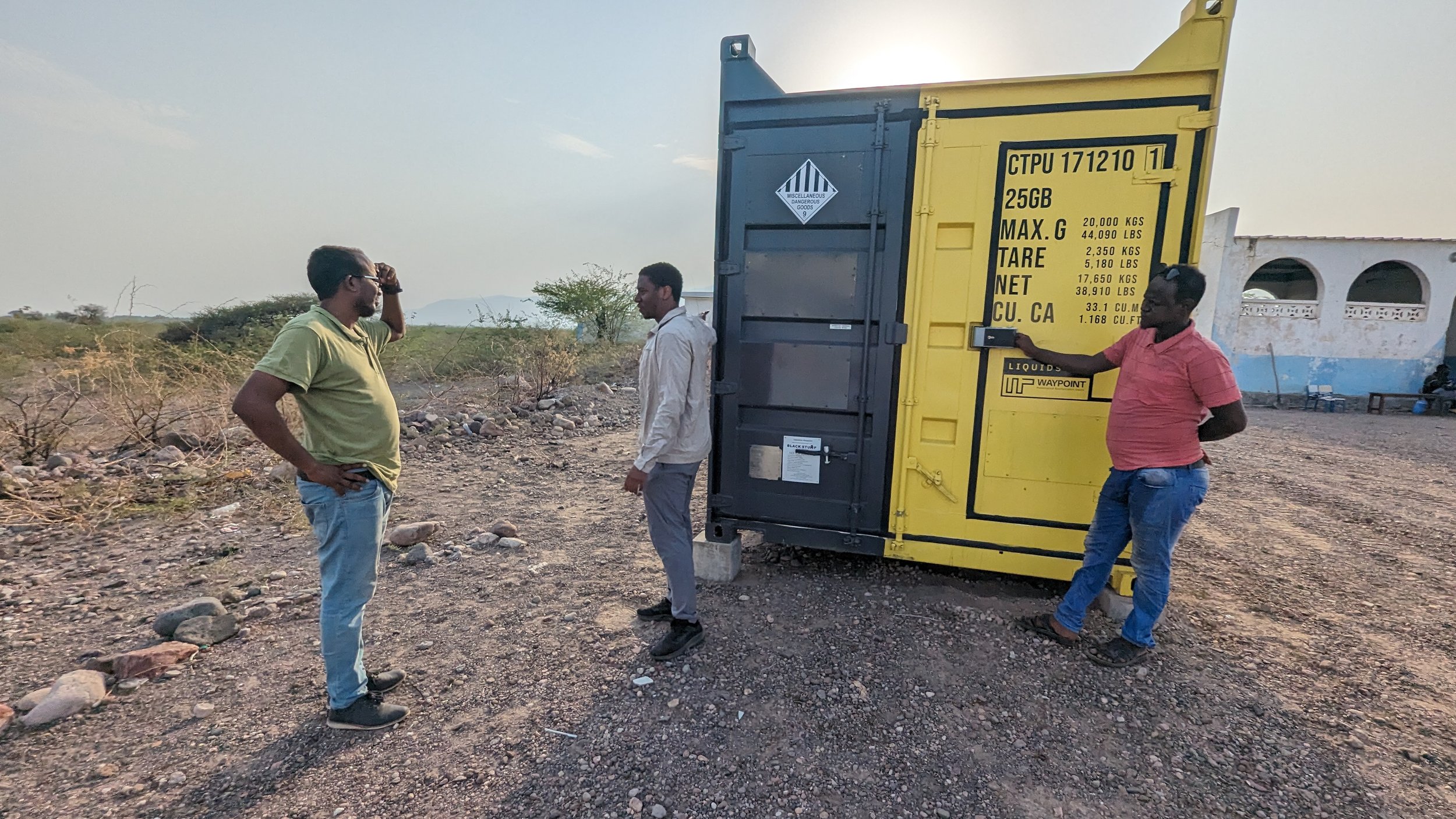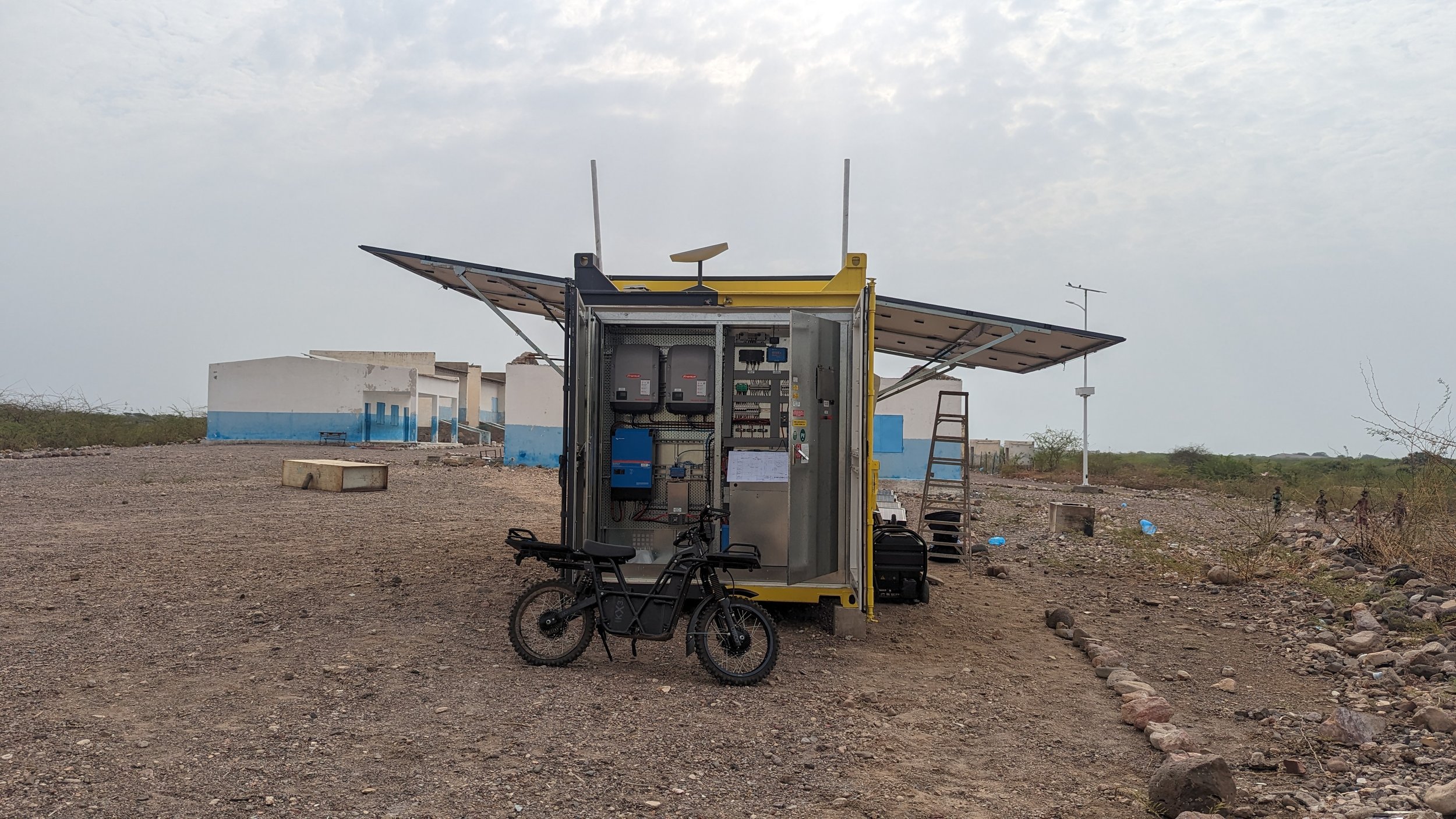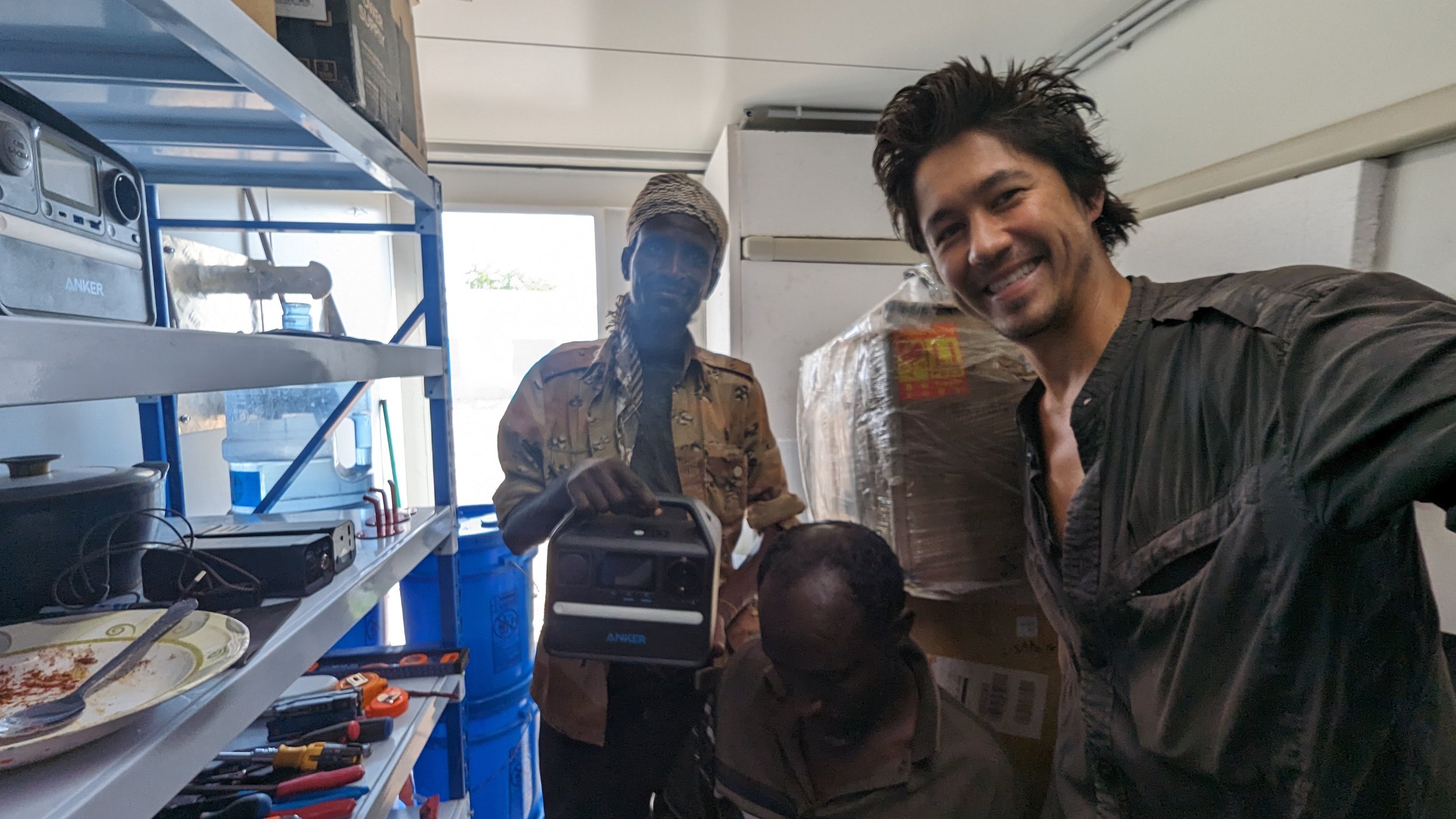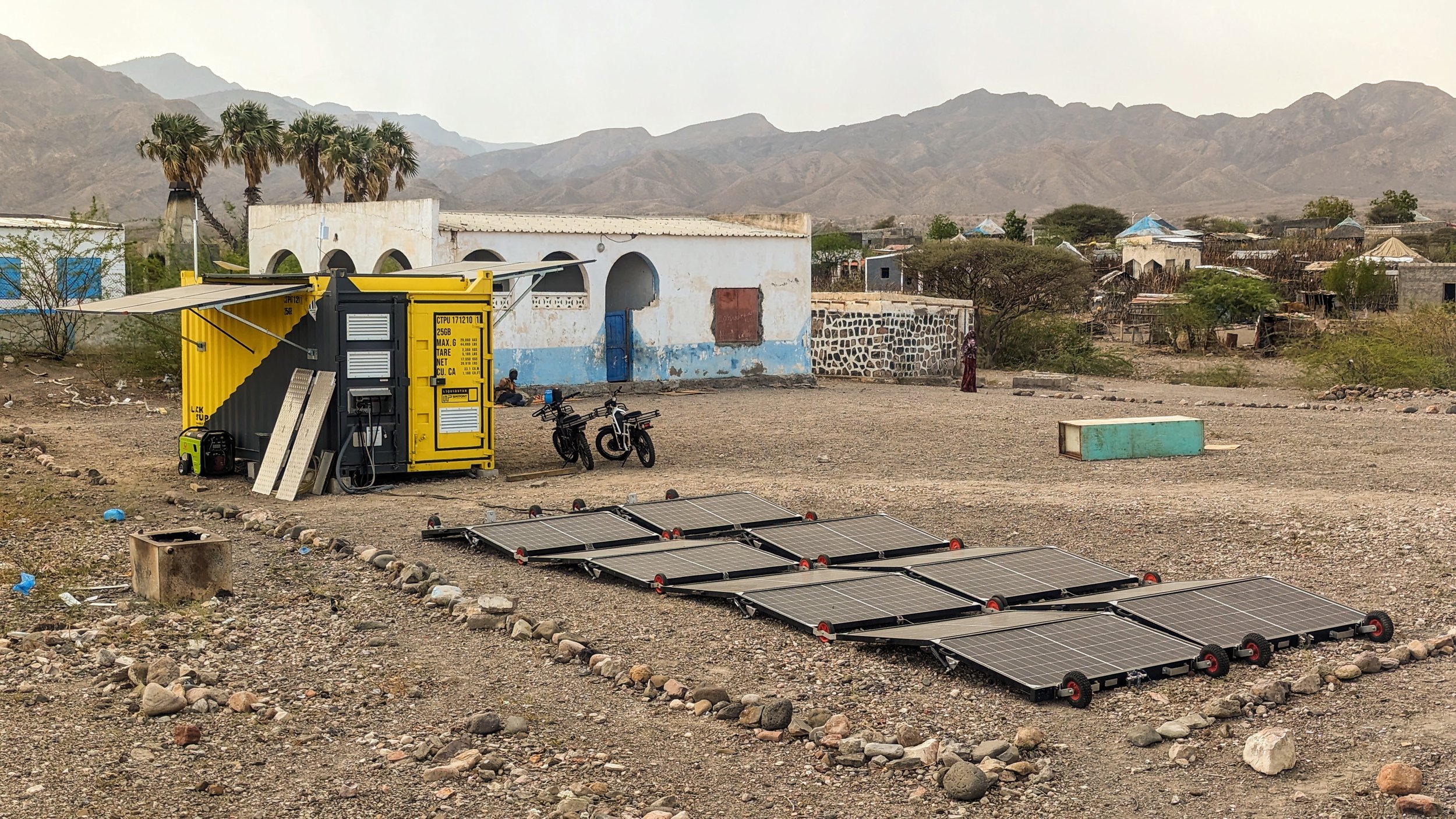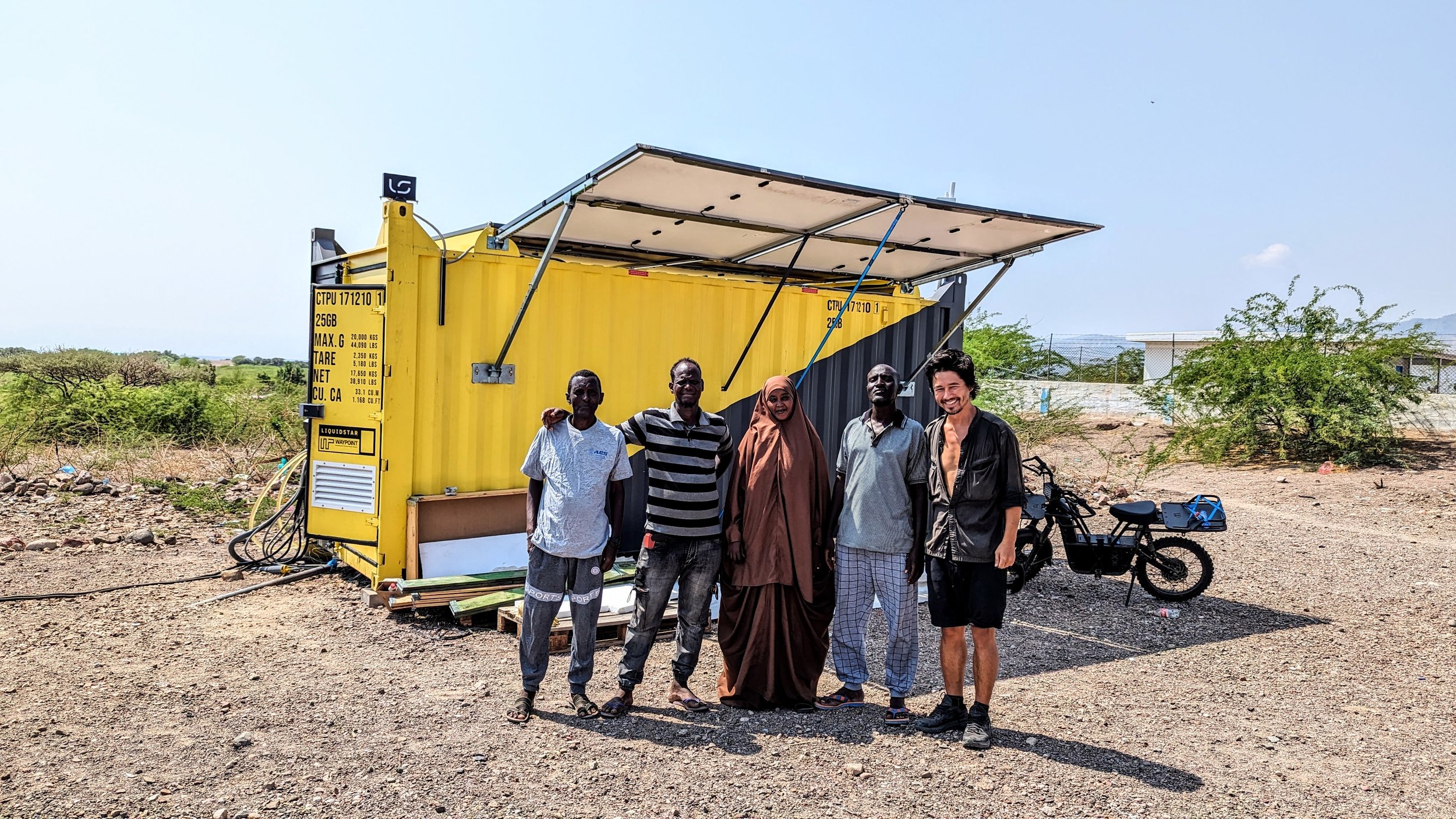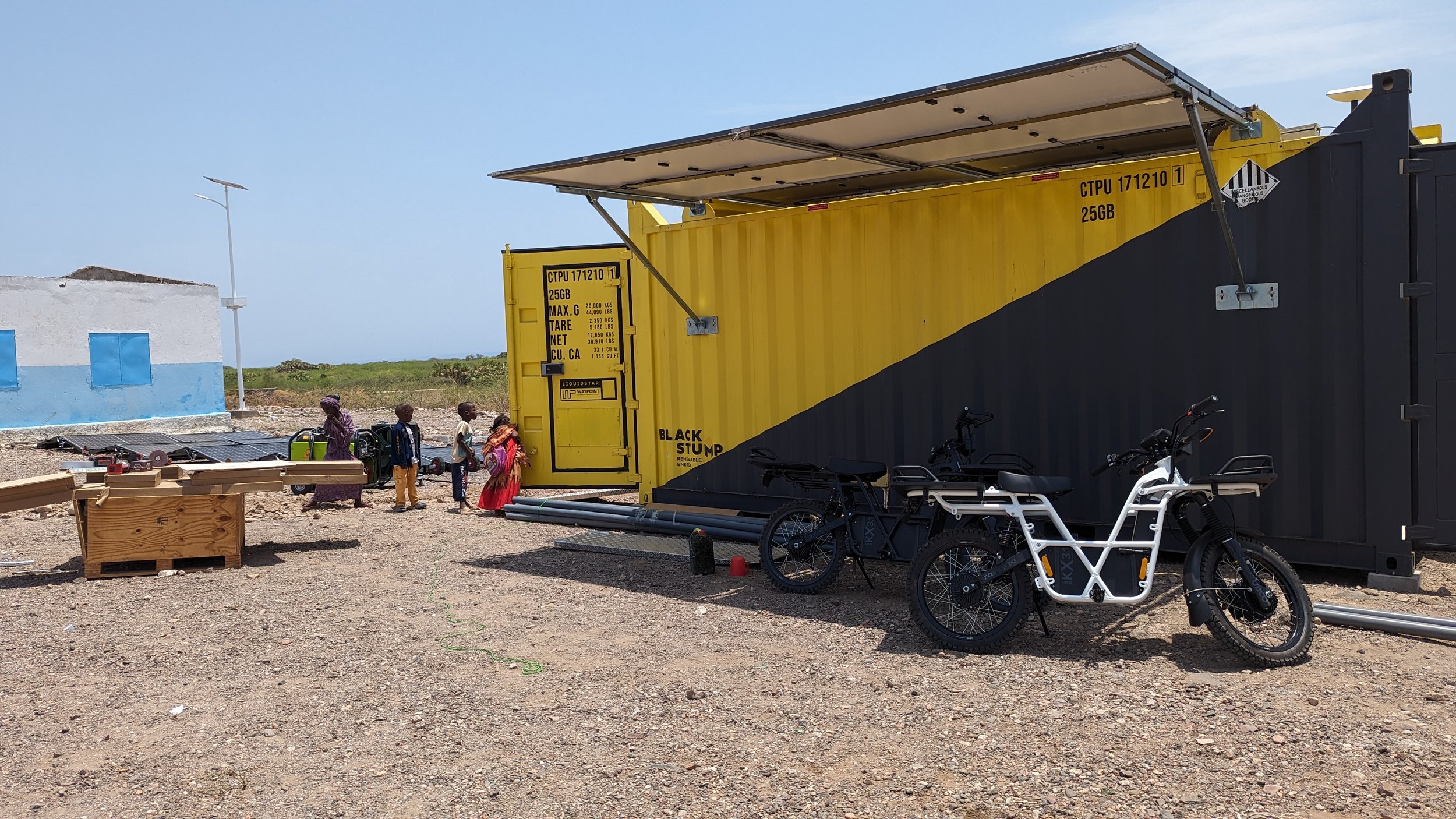Energy Lifelines Enabling Remote Communities
EHF Fellow Conor Colwell (Iti Rearea) is addressing one of the world's pressing issues – access to electricity. As one of the founders of Liquidstar, Conor has pioneered the development of ‘Waypoints’, portable energy and data hubs designed to provide sustainable solutions for remote communities.
“The issue that we identified back when we were starting Liquidstar was that over a billion people don’t have access to electricity. People were burning things every day for access to energy, which seems crazy, even back in 2018. We decided to tackle that huge problem head-on. It’s a bit much to bite off, but we’re still going to try to do it.”
Conor's journey spans various continents and industries, from film production in Los Angeles to macroeconomic research in Hong Kong. His transition from advising on projects to founding ventures, including an identity company specialising in zero-knowledge proof technology, showcases his entrepreneurial spirit and tech acumen. Inspired by his fascination with space exploration and driven by the desire to address fundamental human challenges, Conor co-founded Liquidstar. Grounded in the principles of the United Nations' Sustainable Development Goals (SDGs), he recognised energy access as a critical baseline for societal development, shaping Liquidstar's mission to provide sustainable energy solutions.
The pilot Waypoint in Djibouti, Africa
Liquidstar's primary goal is to address the lack of electricity access for over a billion people worldwide. Their Waypoints serve as multifunctional hubs, providing portable energy, water generation, internet connectivity, and to act as micro data centres. The innovative approach aims to make efficient use of excess energy in remote locations, where traditional power infrastructure is impractical. The technology behind Waypoints has been tested in various pilot programmes, including locations in Jamaica, Indonesia, and Djibouti, Africa.
“The thing we’re trying to work out is how do we compress all of this life support technology into one consolidated unit to minimise the waste of heat and energy overall … With the Waypoint in Djibouti, we received a visit and great review from the Djiboutian Minister of Energy and Interior Resources, as well as his team and the Djiboutian National News Network,” Conor mentions. “This was a good validation for the project and its real-world implementation.”
Conor envisions Liquidstar’s Waypoints as the ‘7-11 of utilities’, with a focus on expanding micro data centre capabilities. The goal is to deploy a global network of these hubs, connecting through space and addressing critical needs in energy, water, and data access. Conor and the team want to deploy 100,000 Waypoints in the next few years, creating a decentralised, resilient infrastructure for off-grid and disaster-stricken areas.
“These hubs are ‘fire hydrants’ of life, infrastructure, and utility. The pilot programmes have been in locations that are so remote, they can’t build power lines out here. And then what do you do with the power once it’s out here? You have to turn it into something. So that’s the ultimate goal, to create a global network.”
“Liquidstar recently received recognition from Samantha Power, the Head Administrator of United States Agency for International Development (USAID), acknowledging us as an innovative project they are working with. This recognition from essentially the largest aid organisation on the planet is a testament to the impact of our work,” Conor shares.
Conor sees potential use cases for Waypoints in Aotearoa NZ, ranging from disaster resilience to off-grid living. Given New Zealand's susceptibility to natural disasters, such as earthquakes and storms, Waypoints could serve as vital infrastructure for maintaining essential services during emergencies. In the event of a disaster, such as Cyclone Gabrielle, where communities like Tairāwhiti were isolated due to washed-out bridges and blocked roads, Waypoints can be airlifted into or permanently stationed at the affected areas to offer a lifeline during times of crisis. Additionally, with the country's vast rural areas and remote communities, Waypoints offer a sustainable solution for off-grid living, providing reliable access to electricity, water, and internet connectivity.
“If there’s total devastation, you can bring one of these [Waypoints] out, and you have an internet-based station, and batteries to recharge devices, water and mobility … It would be exciting to figure out how to do something in NZ, to ensure there’s a lifeline available if there was a disaster and to support with community resilience.”
Conor's work with Liquidstar is at the forefront of addressing the global challenge of ensuring access to energy through innovative solutions like Waypoints. With the potential to uplift the lives of billions and shape a more sustainable and interconnected future, Liquidstar could transform how communities access energy in remote places or challenging circumstances, which is particularly relevant for Aotearoa NZ. Through partnerships, funding avenues, and pilot programmes, Conor believes Aotearoa NZ is an ideal basecamp for testing and modelling how this decentralised and resilient energy access could work locally, and at scale.
To learn more about Liquidstar, visit: https://www.liquidstar.io/

